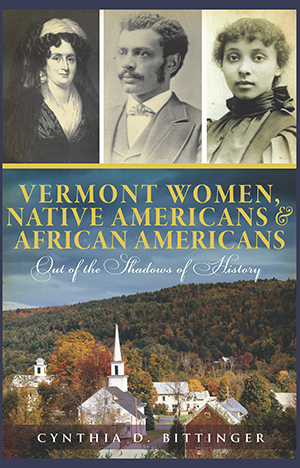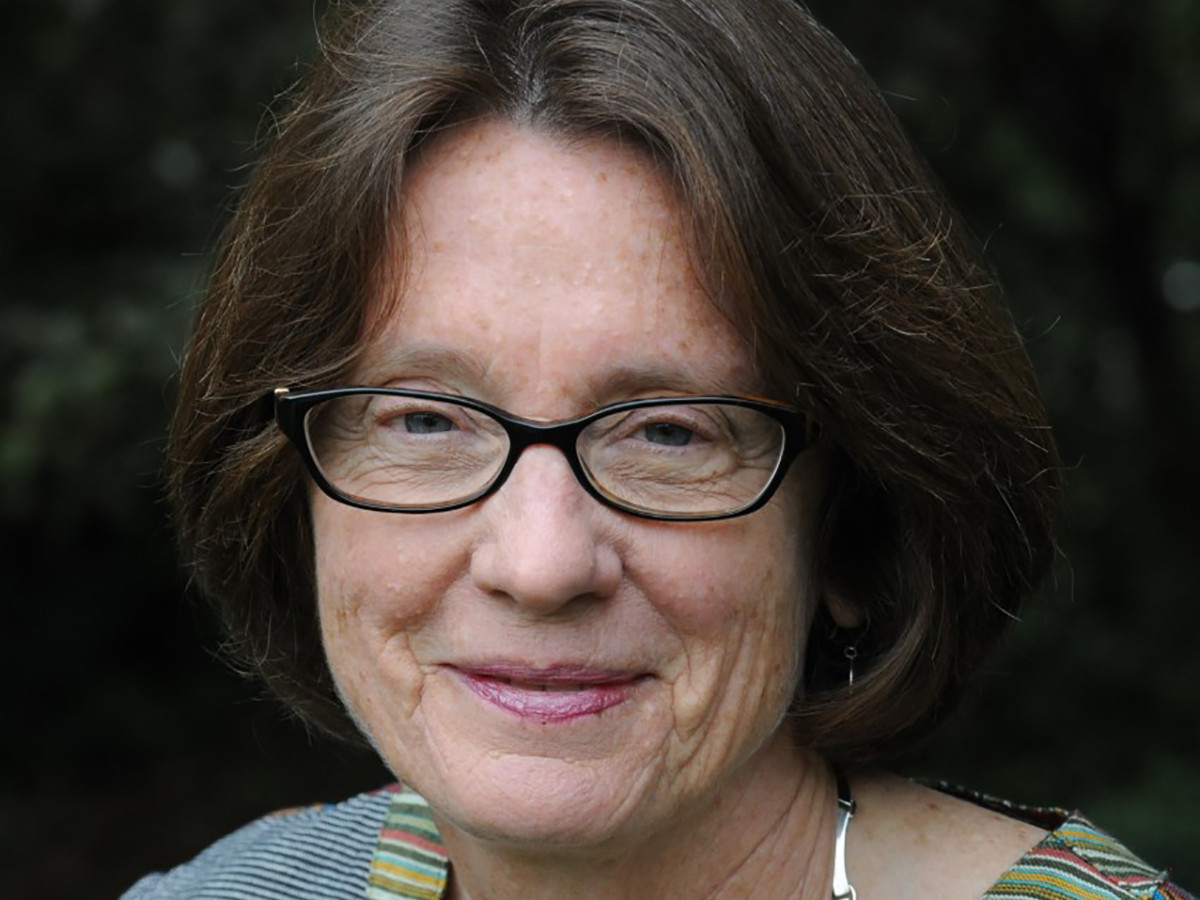
For historian and CCV instructor Cyndy Bittinger, looking back is a way of looking forward. Amid the Black Lives Matter movement and protests against racial injustice in Vermont and across the country, she’s relying on a historical perspective to inform class discussions. “Some students say Vermont is better than most states,” she says. “I remind them that some of the Black Lives Matter signs were vandalized. Racism still exists. I wanted them to realize that there was work to be done in this state. This is current history.”
Bittinger has been a faculty member at CCV for more than 25 years. She had young children at home when she started teaching classes in 1994. “My mother would drive a spaghetti dinner from Grantham, New Hampshire to my family on Monday nights so I could teach,” she recalled. Her Vermont History class took place not at the present-day Upper Valley academic center, but at the local high school. “CCV started very humbly,” she said, with an audible smile. “If I wanted to show a video, I would wheel in the cart with the TV, and we would watch a video.”
She had been serving as executive director of the Calvin Coolidge Memorial Foundation in Plymouth, and occasionally giving talks to local historical societies and Rotaries, when someone from CCV approached her and asked if she wanted to teach. At first it was just the Monday night Vermont History class, but she later added Women in U.S. History.
Bittinger fell in love with history during high school. “I had some great teachers,” she said—one of whom invited her to help organize an international study group. She majored in Government at Wheaton College, and eventually attended Teachers College at Columbia University. She taught high school before working a stint in government with New York Mayor John Lindsay. Eventually she and her husband and children moved to Hanover, New Hampshire to be closer to family. Through it all, “I always had my love of history.”
An expert on first ladies, Bittinger took a hiatus from teaching at CCV to write her first book, Grace Coolidge: Sudden Star, based on letters that had been donated by the Coolidge family. She later returned to CCV, and in 2012 published her second book, Vermont Women, Native Americans & African Americans: Out of the Shadows of History. She wanted to provide a more comprehensive resource for students, and she wanted to fill the gaps in what students had learned in their high school history classes. “So many [students] have only learned the hero story, the white male story. Why not have a history that students can relate to more?”

“Not enough Vermont history has been improved with the story of what women did, the story of what Native Americans did, the story of what African Americans did,” she said. For example, “I think it’s good to read about wonderful activists who were African American.” In her view, most history classes place too much emphasis on slavery or the Underground Railroad. “What I tried to do was find people who were activists and happened to be African Americans, and faced down racism in many cases. And I’d like people to know about that. I think more of these stories should be known.”
Bittinger led the Coolidge Foundation until 2008, and has remained a leader in her community, serving as head of her local historical society, continuing to give talks on her books and other topics, and teaching CCV classes.
Of her more than 25 years at CCV, 10 have been spent teaching online classes. She says she tries to incorporate as much of the face-to-face experience into her online courses as possible. And in today’s political and social climates, Bittinger says it’s more important than ever that her history classes stay relevant. “I’m always adding new articles, new ideas, to get students to think about current events, to try to link what we’re studying to the modern day.”
This fall, Bittinger will once again teach her Vermont History class online. She has some salient advice for students studying in remote formats: “Challenge yourself. Don’t look always to me, the instructor. Challenge yourself, because that will make the class even more important to you.” She says students should take advantage of the many support services available at CCV. “I encourage my students to get the help that they need, so that they can be much more effective in any field that they go into.”
As the start of fall semester approaches, Bittinger has also been reaching out to fellow faculty members, recommending her book Vermont Women, Native Americans & African Americans to those seeking a better understanding of Black activism and racism in Vermont history. She sees it as a way to invite others to engage in the dialogue around racial injustice. “I know that Vermont has always struggled with diversity. It is a topic that we need to address and encourage a lot more in our society. All of us need to work on that.”



